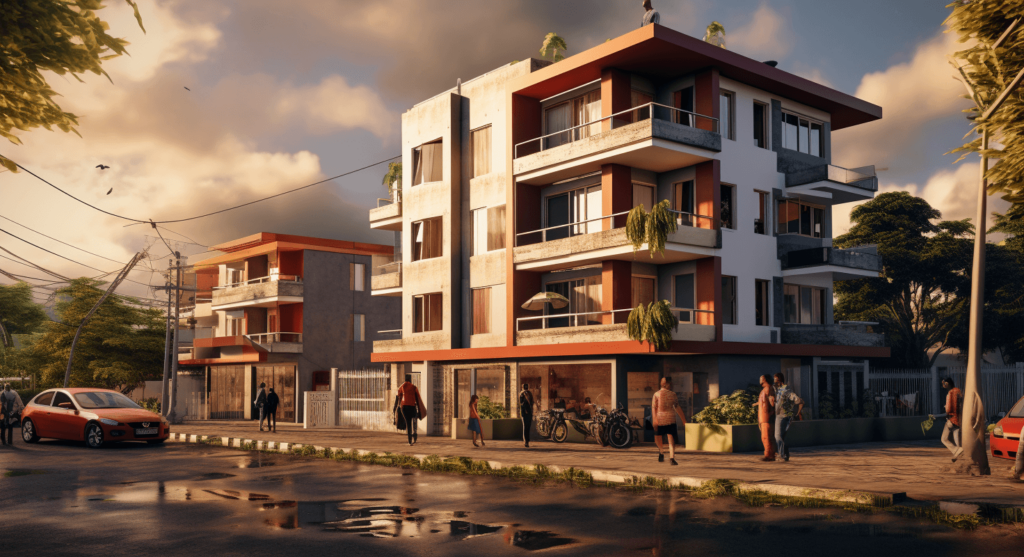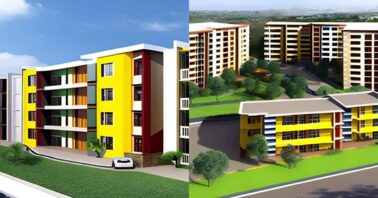Most first-time homebuyers, especially young people, usually look for a place to live before investing in their later homes. However, some are interested in making real estate investments as early as possible. Both are great ways to property ownership, but you must understand the pros and cons of buying a first home vs investment property before trying either venture.
Homes offer stability to young people ready to settle down and start families. Unlike living in rental properties, having a place to call home gives you peace of mind, and you can concentrate on wealth creation.
Table of Contents
Buying Your First Home
When buying a starter home your main concern is bound to be the cost of the house. fortunately, it is possible to find a cheap starter home. But you have to accept that your first home may not have everything you want.
READ ALSO: A Step-by-Step Guide to Buying a House in Kenya
Your first home could be an apartment building, a condo, a townhome, a duplex, or a single-family home. Below are some of the advantages and disadvantages of each option.
Pros of Buying a Home First
- No tenants to deal with
- No property taxes to pay: You will not pay tax as long as you live in your home full time. If you decide to sell the property later, capital gains tax will not be charged, unlike if you own an investment property.
- Stability as you will eliminate the problem of dealing with landlords.
READ ALSO: Types of Taxation in Kenya for a Real Estate Investor

Cons of Buying a Home First
- No extra income
- You have to make all the mortgage payments
- Negative cash flow since the owner incurs liabilities like maintenance and repair expenses.
- Low borrowing capacity: This makes it hard to find financing to invest in a rental property in the future.
Note: If you buy a multi unit home, you can live in one unit and rent the other units. The tenants will ideally be paying the mortgage. You can also opt to rent the entire property and later sell it.
Buying an Investment Property
People buy investment properties intending to generate additional income and make a profit. The owner has the option to rent or sell the property.
When buying an investment property, you need to determine whether it is more financially beneficial to rent the property. If renting the apartment or house still brings in a profit after deducting the amount of money you pay, then you should rent it out.
Pros of Investment Property
- Source of income: Income generation is one of the major pros of purchasing an investment property as your first home. The owner gets rental income that can be used to make mortgage payments, cover expenses, save, or make more investments.
- Build equity: The owner’s net worth grows since real estate property usually appreciates with time. Increased equity is the owner’s return on investment which they can leverage through home equity loans.
- Tax benefits: Unlike making your first home the primary residence, an investment property can give the owner tax breaks on operating expenses like insurance, utilities, legal services, and maintenance. The owner can also deduct depreciation expenses to reduce the taxable rental income.
- Lifestyle flexibility: An investment property does not tie you down with monthly mortgage payments. You can live anywhere as you collect rental income to cover your expenses. Living in a primary residence limits your ability to move.
READ ALSO: Pros and Cons of Investing in Real Estate
Cons of Investment Property
- Risk of negative cash flow: This happens when there are more expenses than rental income, especially long vacancy periods as you wait for a new tenant to occupy the property. Maintaining a property can sometimes be expensive when it comes to unexpected repairs and property taxes. Sometimes rental income may not be enough to cover the entire cost, and the value of real estate property is not guaranteed to increase.
- Difficult tenants: Some tenants are not easy to manage and can stress new homeowners. As the landlord, you must understand tenancy laws. You can also hire a property manager to ensure efficiency in maintaining the property at a cost.
- Tax payments: As a landlord, you must pay rental income tax. During the property sale, capital gains tax and stamp duty tax apply.
- Less liquidity: Real estate property owners reap the most benefits when they hold their investments for long periods.

Should You Rent or Buy a Home Using a Mortgage?
Renting has no maintenance responsibility since the landlord takes care of house repairs. It is also flexible and easier to relocate to other places, and the initial cost of renting is less than taking a mortgage.
The major disadvantages of getting a mortgage are you must have a good credit score to qualify and high interest rates, resulting in paying more than borrowed. You are also at risk of losing the home if you fail to make full loan repayments.
Before applying for a mortgage, you should do a self financial analysis to determine whether you will be able to pay the mortgage without depriving yourself. most banks require you to only use up to two thirds of your income for mortgage repayments.
Use our Free Mortgage Calculator – Calculate Your Home Loan & Monthly Payments
As such, you should use a mortgage calculator to determine the required monthly repayments and then determine if you can cover the mortgage’s cost and still have money left to cover your other expenses.
As a rule of thumb, see if you can cover the mortgage repayments with only one-third of your income. This way, you can still cover your monthly expenses and have extra money to set aside for emergencies. If you cannot do that, then renting is a better choice until your financial position improves.
READ ALSO: Cash vs Mortgage Financing: Which is the Better Option?
Is It Better to Build or Buy a House in Kenya?
Building a house is generally better than buying because you have control over how you want the house to turn out. The house will be customized according to your specifications. However, it is better to weigh the cons and pros of each option in relation to cost, location, legal fees, and other factors before making a decision.

What Type of Investment Property Is Best for Beginners?
There are various options for new investors in the real estate market, including; buy-to-let investments, turnkey properties, and wholesaling real estate.
Before getting into property development, you must have clear goals, do market research, avoid properties that require extensive maintenance and know the expenses involved. You should also avoid anxious buying and be involved in every aspect of the investment, even when getting help from experts.
In Conclusion
Buying first home vs investment property is a choice to be made by the owner after assessing their individual circumstances. Both options have their advantages and disadvantages but property investment results in greater financial gain than home ownership in the long run.
READ ALSO: A Complete Guide to Investing in Rental Property
Investing in rental houses in Kenya is one of the best ways to secure your financial future. It provides a steady cash flow compared to other volatile investments in the country.


